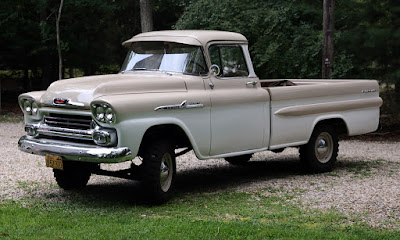When I first saw this new product from Champion I thought of the 1992 film My Cousin Vinnie in which the Marisa Tomei character states, "the evidence proves that the getaway car was actually a 1963 Pontiac Tempest, which had the limited slip differential." Remember that line?
Here's the tie-in. Champion's Limited-Slip Friction Modifier Additive also works with some diesel pick-ups to eliminate noise, vibration and harshness associated with certain positraction, limited slip, and locking differentials. Its robust formula improves mileage, reduces wheel spin, creates more traction, increases drain intervals and results in less wear.Basically, a differential allows the inside and outside wheel to rotate at different speeds in a turn. An "open differential" is the simplest type of differential used by many diesel OEMs. In this scenario the differential allows the inside and outside wheels to turn at different speeds. Unfortunately, an open differential cannot get the power to the wheel that has the least amount of traction.
During straight-line acceleration, an open differential ofter produces a "peg-leg" type burnout. That diminishes straight-line performance. An open differential will tend to spin the inside tire and diminishes the ability of the vehicle's traction.
This was the purpose behind the development of limited-slip differentials (LSD).They were designed to work in both an "open" configuration and a "locked" configuration by limiting or controlling the amount of slip allowed in the differential. For a maximum straight-line acceleration in severe environments or under heavy load, the LSD would allow zero slip between the left and right drive wheels.
For example, pulling a trailer around a corner, the LSD would seek to bias additional power to the outside wheel. This, in turn, would reduce inner wheel spin and allow the driver to maintain better accelerating and control of the turn.
OEMs like Ford, Chrysler and GM have often used a "clutch-type" LSD which has several internal clutch plates that produce a very strong locking performance and superior response in their diesel vehicles.
In general, a clutch-type LSD has pressure rings and friction plates inside the differential case When all the clutch plates are engaged, bothwheels are locked and the torque is transferred equally to both wheels.
In recent years, diesel OEMs have been switching to electronically controlled limited-slip differentials to precisely modulate just how much locking action occurs at any given moment, allowing for even greater performance and control.
There are many models in the market, however, that can benefit from Champion's Limited-Slip Friction Modifier Additive. If they have an installed LSD on a diesel pick-up, it will be referenced in their specific vehicle owner's manual. It will be located on the inside door plate with a code, or a small tag on the rear axle. If in doubt, one can ask for identification assistance from of a qualified and knowledgeable mechanic.
Some popular diesel examples with the LSD option include: Chevrolet 1/2 ton, 3/4 ton, 4WD, 1 ton and Suburban; Dodge 1/2 ton, 4WD, A-100, B250, Power Wagon, Ram 1500, Ram 2500 and Ram 3500; Ford E 250/350, Expedition, F-250, F-350 and F-450; GMC 1/2 ton, 3/4 ton and Hummer H2/H3.
Use Champion's Limited-Slip Friction Modifier Additive at a 1:25 dilution in appropriate gear oils or use at a 1:10 ratio to provide factory fill limited slip performance. Champion friction modification technology has been shown to provide more durable friction modification than the major OEM technologies in SAE #2 friction durability testing with a variety of clutch plate materials. The additive has a high viscosity-index (VI) that provides relatively constant viscosity and film thickness with varying temperature change.
This premium friction modification technology has been lab tested and field proven in demanding high-speed police fleet trials -- where fast acceleration, high torque and low traction place severe demands on locking differentials. The new product surpasses OEM requirements.
Champion Limited-Slip Friction Modifier Additive specific properties: Light amber color, 5.1 Viscosity @ 100°C cSt, Flash Point 385°F, 0.88 Specific Gravity.
Composition Ingredients: Mineral Oil and small concentrations of proprietary LSD performance additives.
* * *
2021 Champion New Products
and Announcements
Champion Brands Celebrates 65 Years in the Lubricant Business
Champion Oil's Winter-Blend Diesel Flo Fuel Additive Gets an Upgrade
Highlighting A New All-Season Air Brake Anti-Freeze from Champion Brands
Champion’s Classic & Muscle 15W-50 Motor Oil for Vintage Trucks
Blue Flame Contingency Program for Drag Racers: How to Get Your Piece of the Action
Champion Oil Seeking Diesel Vehicle Builds for SEMA 2021
Special Offer For New Champion Diesel Oil Distributors
Champion Blue Flame Diesel Engine Oil Recommended for Limited-Edition Shelby F-250 Super Baja Pick-Up
Champion Oil Introduces a Professional Grade 80% Ether Starting Fluid
Champion Blue Flame Diesel Engine Oil Supports OOIDA Members
Champion Offers Power-Shield Assembly Lube & Oil Booster to Diesel Engine Builders
































